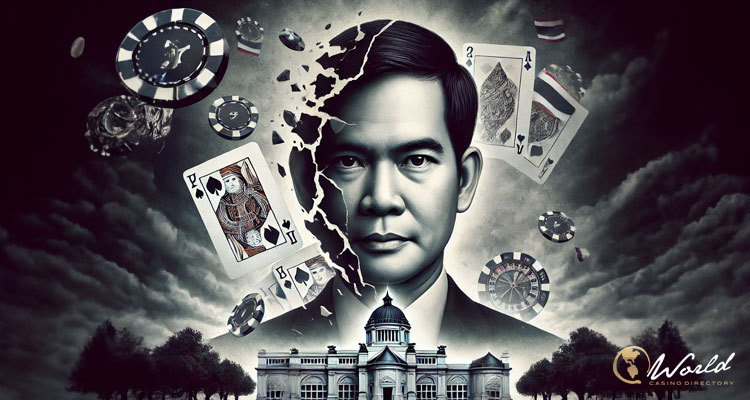
In a significant political development, Srettha Thavisin, the leader of the Thai government and a prominent supporter of the initiative to legalize casino resorts in Thailand, was removed from office by the country’s Constitutional Court. This decision followed his controversial appointment of a former lawyer who had previously served a prison sentence to his cabinet, sparking a major political and media backlash that led to his ouster.
The ouster’s impact on casino legislation:
The removal of Srettha Thavisin, a member of the Pheu Thai Party and a noted real estate entrepreneur, marks the fourth instance in 16 years where a Thai prime minister has been ousted by the court. This abrupt change in leadership occurs amidst critical discussions regarding the legalization of the casino resort business in Thailand, potentially delaying or disrupting the legislative process that could see gaming complexes opening by 2030.
Responses from the casino industry have highlighted concerns over the potential impact of this political upheaval on the future of gambling legislation in Thailand. Daniel Cheng, a casino industry analyst and author, expressed to GGRAsia that while some delay is expected, it could beneficially slow down what he viewed as a hastily moving legislation process. He stated, “Some inertia is inevitable, but that’s fine in my view. The gaming legislation was moving much too fast and was at risk of missing the forest for the trees.” This suggests that a more deliberate pace could ensure a more thorough and effective policy framework.
Brendan Bussmann from B Global Advisors provided further insights, noting, “At a minimum, the change in government [leadership] will slow down the speed and process,” regarding the liberalization of the casino market. He questioned whether the new administration would have the political strength or interest to continue pursuing entertainment centers as drivers for tourism and investment, which the Thai authorities refer to when discussing casino resorts.
Legislative developments and public response:
Prior to Mr. Srettha’s dismissal, there was growing opposition to the legalization of casino resorts, as reported by the Bangkok Post. This opposition came not only from external critics like the Democrat Party but also from within the ranks of Thailand’s coalition government itself. These parties raised concerns about the social and economic implications of expanding the gambling sector within the kingdom.
The legislative framework currently under review, known as the Entertainment Complex Bill, is in the midst of a public consultation period ending on August 18. This draft legislation outlines the establishment of a “Policy Committee” chaired by the prime minister, deputy prime minister, and five other ministers. This committee is empowered to decide the number of casino licenses, designate operational areas, and set the tax rates for casino businesses, indicating the high stakes involved in these decisions.
In India, cricket is by far the most popular sport, and sports betting often peaks around major cricket tournaments like the IPL (Indian Premier League), ICC World Cup, or Test series. Other popular sports for betting include football, kabaddi, and horse racing.
The best time to play stake in India depends on several factors, including the type of game you're playing, the events or promotions running, and your personal gaming habits. To get the most out of your betting or casino experience, consider playing during peak sports events, taking advantage of promotions, or opting for off-peak hours for more relaxed play.
Whether it’s a cricket match, a weekend casino bonus, or the perfect time to place your bets, timing can make all the difference in your gaming success.





